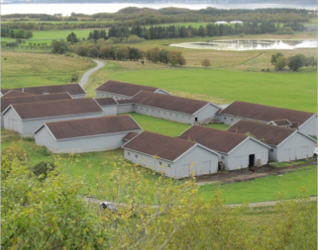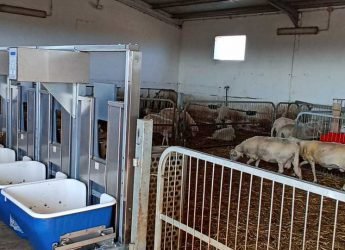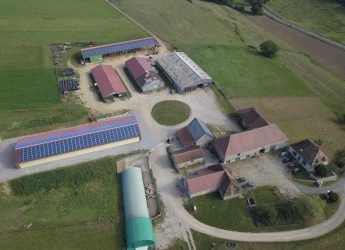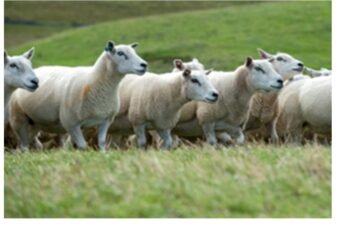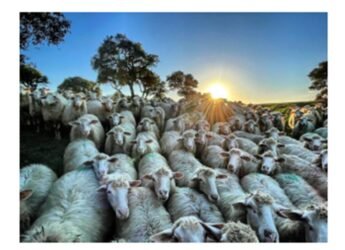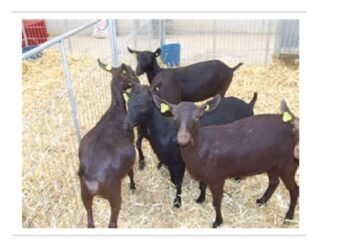Sm@RT est un project de 3 ans financé par le programme européen Horizon H2020 n° 101000471 , Recherche et Innovation Réseau Thématique. Il a debuté en janvier 2021.
Les 11 partenaires du reseau Sm@RT sont:
- SRUC (Coordinateur du projet), Ecosse
- Moredun Research Institute, Ecosse
- Institut de l’Elevage, France,
- Norsk Institutt for Biookonomi (NIBIO), Norvege
- Teagasc – Agriculture and food development authority, Irlande
- Universite de Debrecen (UNIDEB), Hongrie
- AGRIS Sardegna – Italie
- Institut National de la Recherche Agronomique, l’Alimentation et l’Environnement (INRAE), France
- Agricultural Research Organisation of Israel, Israel
- Estonian University of Life Sciences (Eesti Maaulikool), Estonie
- In Extenso Innovation Croissance (IEIC), France

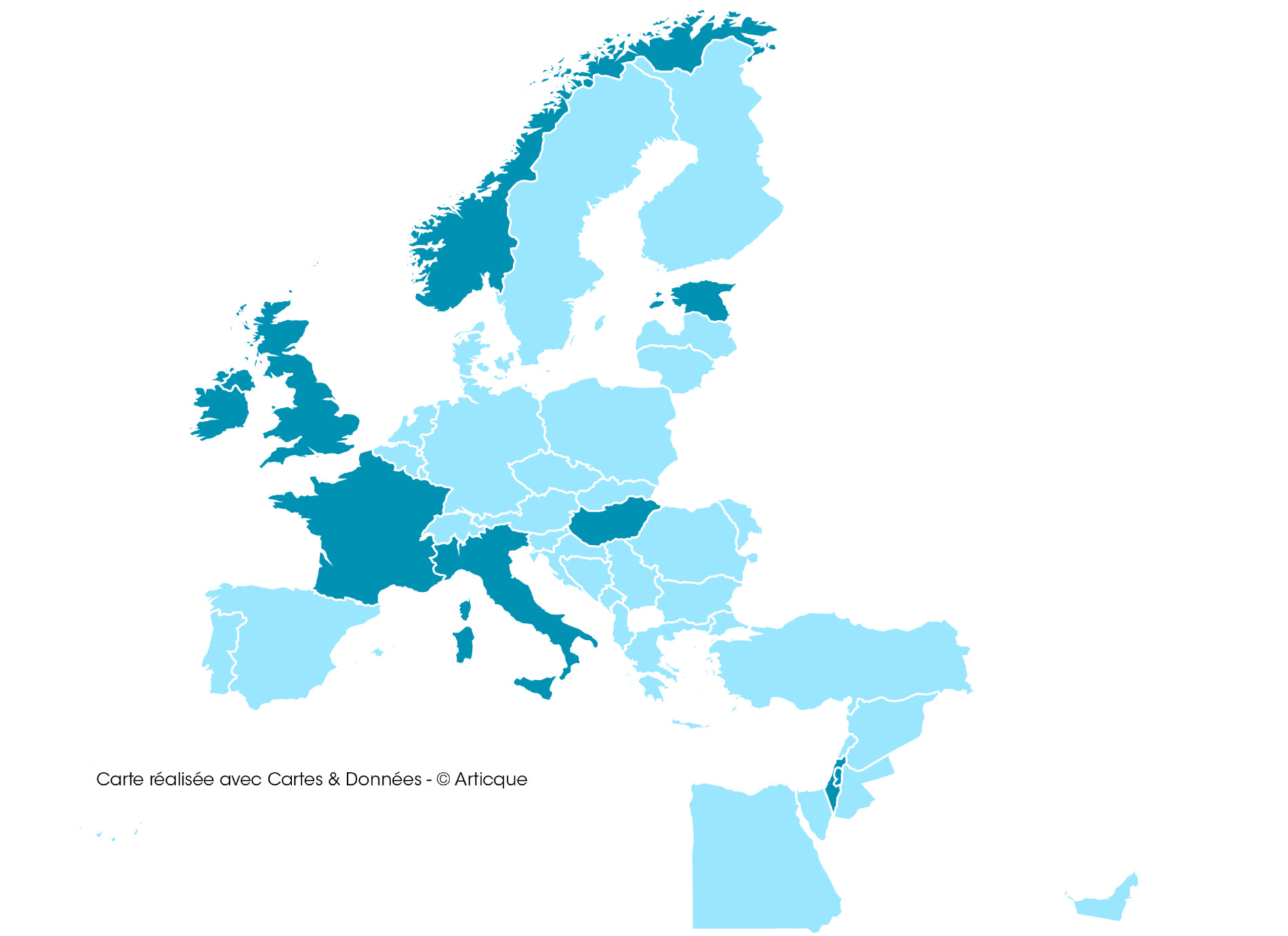
SRUC (Scotland’s Rural College)
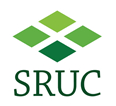 SRUC (Scotland’s Rural College) is the UK’s leading Research, Education and Consultancy providing organisation specialising in services for the land-based industries both nationally and internationally. As a large, modern, and multi-disciplinary organisation, SRUC has a concentration of skills and resources that are unrivalled in the UK, throughout Europe and further afield. SRUC’s aim is to create, develop and apply knowledge, skills and understanding to enhance the sustainability of rural areas and communities and the viability of the industries on which they depend. Its approximately 1500 staff provide research, education and consultancy services to small and medium-sized enterprises, corporate clients, local and regional authorities and state agencies and departments. More information: www.sruc.ac.uk
SRUC (Scotland’s Rural College) is the UK’s leading Research, Education and Consultancy providing organisation specialising in services for the land-based industries both nationally and internationally. As a large, modern, and multi-disciplinary organisation, SRUC has a concentration of skills and resources that are unrivalled in the UK, throughout Europe and further afield. SRUC’s aim is to create, develop and apply knowledge, skills and understanding to enhance the sustainability of rural areas and communities and the viability of the industries on which they depend. Its approximately 1500 staff provide research, education and consultancy services to small and medium-sized enterprises, corporate clients, local and regional authorities and state agencies and departments. More information: www.sruc.ac.uk
Project contact (and coordinator): Claire Morgan-Davies (claire.morgan-davies@sruc.ac.uk)
Network Facilitator: Ann McLaren (ann.mclaren@sruc.ac.uk)
La Moredun Foundation
 The Moredun Foundation is owned and governed by farmers and is one of the largest livestock charities in the UK, working to promote the highest standards of health and welfare of animals through research and education. The Moredun Foundation governs the work of the Moredun Research Institute to conduct internationally recognised research on the infectious diseases of livestock to help find solutions for major challenges to modern farming such as the consequences of a changing climate; ensuring safe and sustainable food and water supplies conserving biodiversity and finding solutions to infectious diseases. Today, many of the veterinary medicines and vaccines that are routinely used on farm have either been researched, developed or tested at Moredun. More information: www.moredun.org.uk
The Moredun Foundation is owned and governed by farmers and is one of the largest livestock charities in the UK, working to promote the highest standards of health and welfare of animals through research and education. The Moredun Foundation governs the work of the Moredun Research Institute to conduct internationally recognised research on the infectious diseases of livestock to help find solutions for major challenges to modern farming such as the consequences of a changing climate; ensuring safe and sustainable food and water supplies conserving biodiversity and finding solutions to infectious diseases. Today, many of the veterinary medicines and vaccines that are routinely used on farm have either been researched, developed or tested at Moredun. More information: www.moredun.org.uk
Project contact: Fiona Kenyon (fiona.kenyon@moredun.ac.uk)
Institut de l’Elevage (Idele)
 The French Livestock Institute (Institut de l’Elevage, acronym Idele) is the French national technical reference and normative body in livestock farming systems. It is a nonprofit, non-governmental organization featuring management by livestock farmer’s federations and trade unions. Its activities encompass applied research, technical assistance and technology transfer in cattle, sheep, goats and horses husbandry sciences. It employs 300 people. The main research topics are genetic evaluation, population management and selection, phenotyping and data collection, management of observatories of breeds, precision livestock farming, animal husbandry techniques and environment including fodder and pastoralism, quality of animal products, animal health and welfare, farm economics, value chain economics, farm workmanship and social approaches, methods and tools for references and advisory services. More information: Institut de l’Elevage
The French Livestock Institute (Institut de l’Elevage, acronym Idele) is the French national technical reference and normative body in livestock farming systems. It is a nonprofit, non-governmental organization featuring management by livestock farmer’s federations and trade unions. Its activities encompass applied research, technical assistance and technology transfer in cattle, sheep, goats and horses husbandry sciences. It employs 300 people. The main research topics are genetic evaluation, population management and selection, phenotyping and data collection, management of observatories of breeds, precision livestock farming, animal husbandry techniques and environment including fodder and pastoralism, quality of animal products, animal health and welfare, farm economics, value chain economics, farm workmanship and social approaches, methods and tools for references and advisory services. More information: Institut de l’Elevage
Network Facilitator: Laurence Depuille (Laurence.depuille@idele.fr)
Project contact: Jean-Marc Gautier (jean-marc.gautier@idele.fr)
Norwegian Institute of Bioeconomy Research (NIBIO)
 Norwegian Institute of Bioeconomy Research (NIBIO) is subject to the Ministry of Agriculture and Food as an administrative agency with special authorization and its own supervisory board. The goal of the Institute is to contribute to food security, sustainable resource management, innovation and value creation through research and knowledge production within food, forestry and other biobased industries. NIBIO delivers research, managerial support and knowledge for use in national preparedness, as well as for businesses and the society at large. Approximately 700 employees are present in all parts of the country. The main office is located at Ås in Akershus, just outside Oslo. More information: www.nibio.no
Norwegian Institute of Bioeconomy Research (NIBIO) is subject to the Ministry of Agriculture and Food as an administrative agency with special authorization and its own supervisory board. The goal of the Institute is to contribute to food security, sustainable resource management, innovation and value creation through research and knowledge production within food, forestry and other biobased industries. NIBIO delivers research, managerial support and knowledge for use in national preparedness, as well as for businesses and the society at large. Approximately 700 employees are present in all parts of the country. The main office is located at Ås in Akershus, just outside Oslo. More information: www.nibio.no
Network Facilitator and project contact: Lise Grøva (lise.grova@nibio.no)
Teagasc – Agriculture and food development authority, Ireland
 Teagasc – Agriculture and food development authority, Ireland is the national body providing integrated research, advisory and training services to the agriculture (farming & forestry) and food industries and rural communities. The Teagasc mission is to support science-based innovation in the agri-food sector and the broader bioeconomy that will underpin profitability, competitiveness and sustainability. Teagasc is a client-based organisation employing approximately 1,200 staff at 55 locations throughout Ireland and operates in partnership with all sectors of the agriculture and food industry and with rural development agencies. Teagasc has developed close alliances with research, advisory and training agencies throughout the world and are continuously seeking to expand its international contacts. More information: www.teagasc.ie
Teagasc – Agriculture and food development authority, Ireland is the national body providing integrated research, advisory and training services to the agriculture (farming & forestry) and food industries and rural communities. The Teagasc mission is to support science-based innovation in the agri-food sector and the broader bioeconomy that will underpin profitability, competitiveness and sustainability. Teagasc is a client-based organisation employing approximately 1,200 staff at 55 locations throughout Ireland and operates in partnership with all sectors of the agriculture and food industry and with rural development agencies. Teagasc has developed close alliances with research, advisory and training agencies throughout the world and are continuously seeking to expand its international contacts. More information: www.teagasc.ie
Network Facilitator and project contact: Tim Keady (tim.keady@teagasc.ie)
Debreceni Egyetem (UNIDEB) Hungary
 Debreceni Egyetem (UNIDEB) Hungary
Debreceni Egyetem (UNIDEB) Hungary
UNIDEB is the oldest, continously operating higher education institution in Hungary. Today, the University of Debrecen carries out its agricultural training, research and development activities in three organizational units: the Faculty of Agriculture, Food Science and Environmental Management (MÉK), the Faculty of Economics (GTK) and the Institutes for Agricultural Research and Educational Farm (AKIT). Research activities of the Institutes for Agricultural Research and Educational Farm involve the entire agricultural sector. Research is carried out on the field of animal husbandry, crop production, horticulture, environmental management, nature conservation, wildlife management, food science, quality assurance and natural sciences. At the Kismacsi Animal Husbandry Experimental Farm, gene conservation, breeding and production activities are carried out in parallel with the practical training. In the field of animal husbandry, the research area is the genetic analysis of hairy and shaggy wool sheep in order to stabilize the national herd. The Faculty of Agriculture, Food Science and Environmental Management – adapting to today’s scientific challenges – formulates both its training and research activities according to the circular bio-economy model, which is based on the recycling of materials and values, by increasing the added value of the produced product, through services and smart solutions. It is especially important for us to maintain a wide-ranging system of professional and economic relations with the enterprises of the region, which, on the one hand, provides the conditions for practical training and, on the other hand, helps to utilize the scientific results created at the University. Our undergraduate and master’s programs, our talent management colleges, and our doctoral schools all play a decisive role in higher agricultural education and scientific supply.
More information: mek.unideb.hu | akit.unideb.hu
Network Facilitator and project contact: Orsyola Nagi (orsinagy21@gmail.com)
AGRIS Sardegna – Agenzia per la Ricerca in Agricoltura, Italy
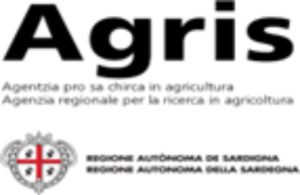 AGRIS Sardegna – Agenzia per la Ricerca in Agricoltura, Italy
AGRIS Sardegna – Agenzia per la Ricerca in Agricoltura, Italy
AGRIS is the regional agency of Sardinian government devoted to research and technology transfer in agriculture, agri-food industry, forestry and marine resources. The mission of the agency is to support sustainable rural development, favour animal welfare, protect or enhance biodiversity at microbial, vegetal and animal level. In particular, Agris – Livestock Production and Animal Product Divisions- have developed since early 70s research and innovation in the field of animal genetics, nutrition and reproduction, farming systems, quality assessment and technology of dairy and meat products from sheep, goat and cattle. Agris has a well rooted experience on the development of precision farming tools and techniques aimed at improving animal welfare, production efficiency and product quality. More information: www.sardegnaagricoltura.it/innovazionericerca/agris/
Network Facilitator and project contact: Valeria Giovanetti (vgiovanetti@agrisricerca.it)
Institut National de la Recherche Agronomique, l’Alimentation et l’Environnement (INRAE), France
![]() Institut National de la Recherche Agronomique, l’Alimentation et l’Environnement (INRAE), France
Institut National de la Recherche Agronomique, l’Alimentation et l’Environnement (INRAE), France
carries out mission-oriented research for better food and nutrition, preservation of the environment and competitive, sustainable agricultural practices. The institute aims to carry out science dedicated to life, humans, and the Earth that uncovers solutions to our most pressing concerns. Humankind and the planet are facing global changes provoking new challenges for research to address: limiting the effects of and adapting to climate change; increasing food security and nutrition security; transitioning to new agricultural systems; preserving natural resources; restoring biodiversity; and anticipating and managing risks while considering regional issues like living conditions, farmers’ salaries, the economic competitiveness of companies, land use, and universal access to healthy and varied diets. As the world’s top institute for research on agriculture, food, and the environment, INRAE address these concerns by using research, innovation, and support for public policies as tools to guide the emergence of sustainable agricultural and food production systems. INRAE is suited to perform valuable research on numerous topics, including agroecological transition of farming systems, water resources, regional agricultural strategies, the preservation and restoration of biodiversity, risk anticipation and management, and digital agriculture. More information: www.inrae.fr
Project contact: Eliel Gonzalez-Garcia (eliel.gonzalez-garcia@inrae.fr)
Agricultural Research Organisation of Israel, and PLF lab, Israel
 Agricultural Research Organisation of Israel, and PLF lab, Israel
Agricultural Research Organisation of Israel, and PLF lab, Israel
Located at the Volcani Center campus in Bet-Dagan, near Tel-Aviv, ARO’s six institutes are responsible for Plant Sciences, Animal Science, Plant Protection, Soil, Water and Environmental Sciences, Agricultural Engineering, and Postharvest and Food Sciences. ARO also operates four research stations, in various parts of the country, and serves as a testing center for agricultural produce and equipment. Israel’s Gene Bank for Agricultural Crops is also located on the ARO Volcani Center campus.
The Precision Livestock Farming (PLF) Lab, is a research unit at the Institute of Agricultural Engineering of the Agriculture Research Organization.
While encompassing the full range of agricultural research activities, the PLF lab focuses in particular on developing PLF management concepts and their associated monitoring technologies (sensors) for farmed animals (dairy, sheep, goats, poultry, and aquaculture).
The lab’s researchers and close and long-standing relationships with Israeli students, engineers and technicians and their counterparts in Europe, the US, Australia and elsewhere; and with Israeli technological and agricultural companies. The laboratory implements its vision through excellence in research and development, to help Israel to continue achieving one of the highest levels of agricultural output in the world. More Information: PLF
Network Facilitator : Alon Bar-Shamai (alonb@volcani.agri.gov.il)
Project contact: Ilan Halachmi (halachmi@volcani.agri.gov.il)
The Estonian University of Life Sciences (Eesti Maaulikool)
 The Estonian University of Life Sciences (Eesti Maaulikool) is the centre of research and development in such fields as agriculture, forestry, animal science, veterinary science, rural life and economy, food science and environmentally friendly technologies. The mission of the Estonian University of Life Sciences is to guarantee sustainable use of natural resources and enhance rural development. EULS manages currently 250 research projects funded by the EU, Estonian Research Council, non-profit organisations, national authorities and private enterprises.
The Estonian University of Life Sciences (Eesti Maaulikool) is the centre of research and development in such fields as agriculture, forestry, animal science, veterinary science, rural life and economy, food science and environmentally friendly technologies. The mission of the Estonian University of Life Sciences is to guarantee sustainable use of natural resources and enhance rural development. EULS manages currently 250 research projects funded by the EU, Estonian Research Council, non-profit organisations, national authorities and private enterprises.
More information: www.emu.ee
Network Facilitator and project contact: Peep Piirsalu (Peep.Piirsalu@emu.ee)
In Extenso Innovation Croissance (IEIC), France
 In Extenso Innovation Croissance (IEIC), France is a French entity specialized in innovation management, it is specialized in supporting the development of innovative projects and represents a team of 100 consultants with backgrounds in both engineering and marketing/finance. For the last 16 years, In Extenso Innovation Croissance have built a strong experience and expertise in innovation management, thanks to its partnerships with startups, incubators, accelerators, public clusters, etc. Since innovation management is the core of its DNA, IEIC is able to deal with all the data available on different markets and to evaluate a specific innovative project in its own environment, in order to estimate the valuation of a technology or innovative product or service. More information: www.inextenso-innovation.fr
In Extenso Innovation Croissance (IEIC), France is a French entity specialized in innovation management, it is specialized in supporting the development of innovative projects and represents a team of 100 consultants with backgrounds in both engineering and marketing/finance. For the last 16 years, In Extenso Innovation Croissance have built a strong experience and expertise in innovation management, thanks to its partnerships with startups, incubators, accelerators, public clusters, etc. Since innovation management is the core of its DNA, IEIC is able to deal with all the data available on different markets and to evaluate a specific innovative project in its own environment, in order to estimate the valuation of a technology or innovative product or service. More information: www.inextenso-innovation.fr
Project contact: Benjamin Lopez (benjamin.lopez@inextenso-innovation.fr)
retour en haut
retour en haut
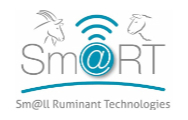
 AGRIS Sardegna – Agenzia per la Ricerca in Agricoltura, Italy
AGRIS Sardegna – Agenzia per la Ricerca in Agricoltura, Italy Institut National de la Recherche Agronomique, l’Alimentation et l’Environnement (INRAE), France
Institut National de la Recherche Agronomique, l’Alimentation et l’Environnement (INRAE), France









